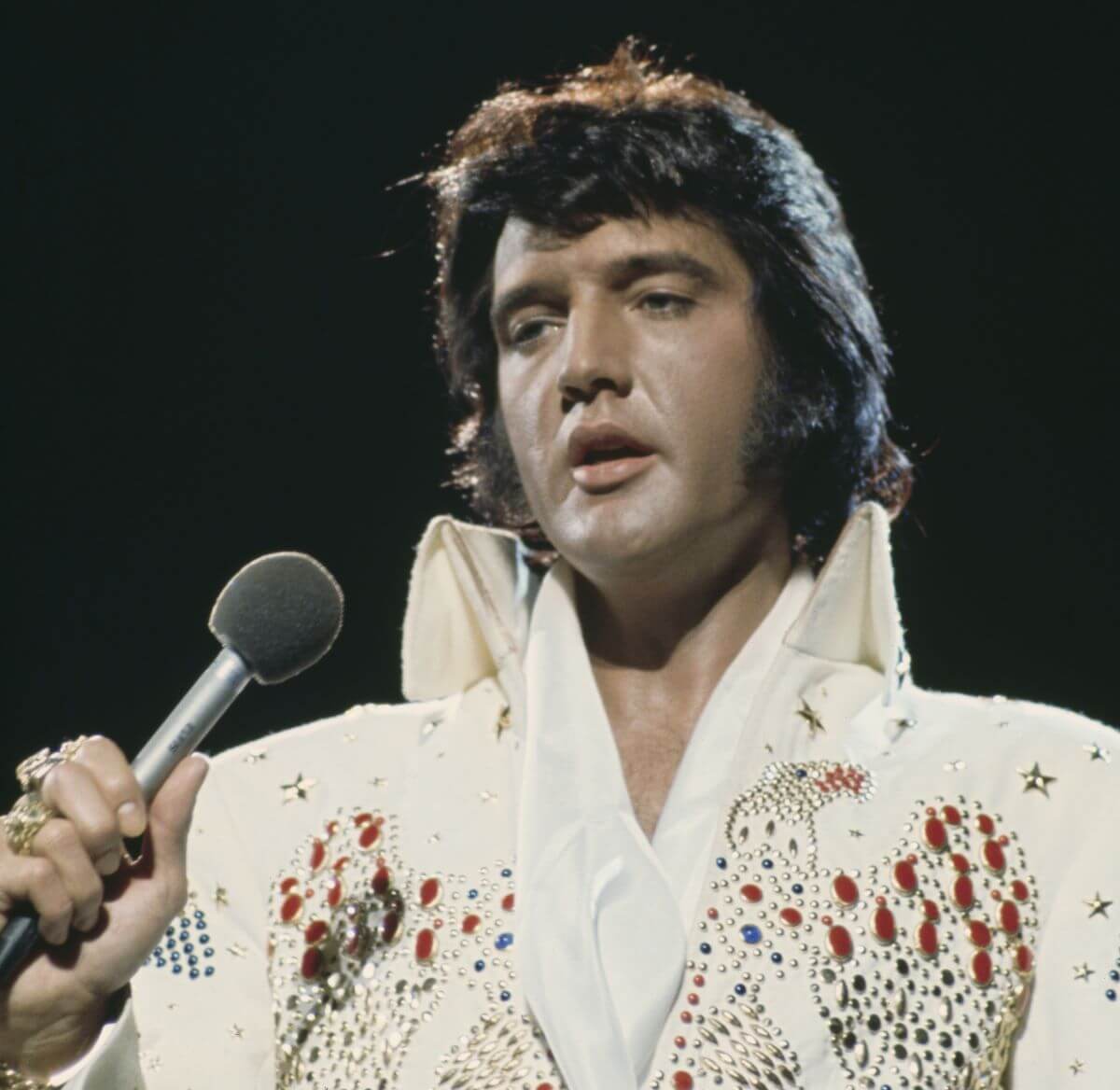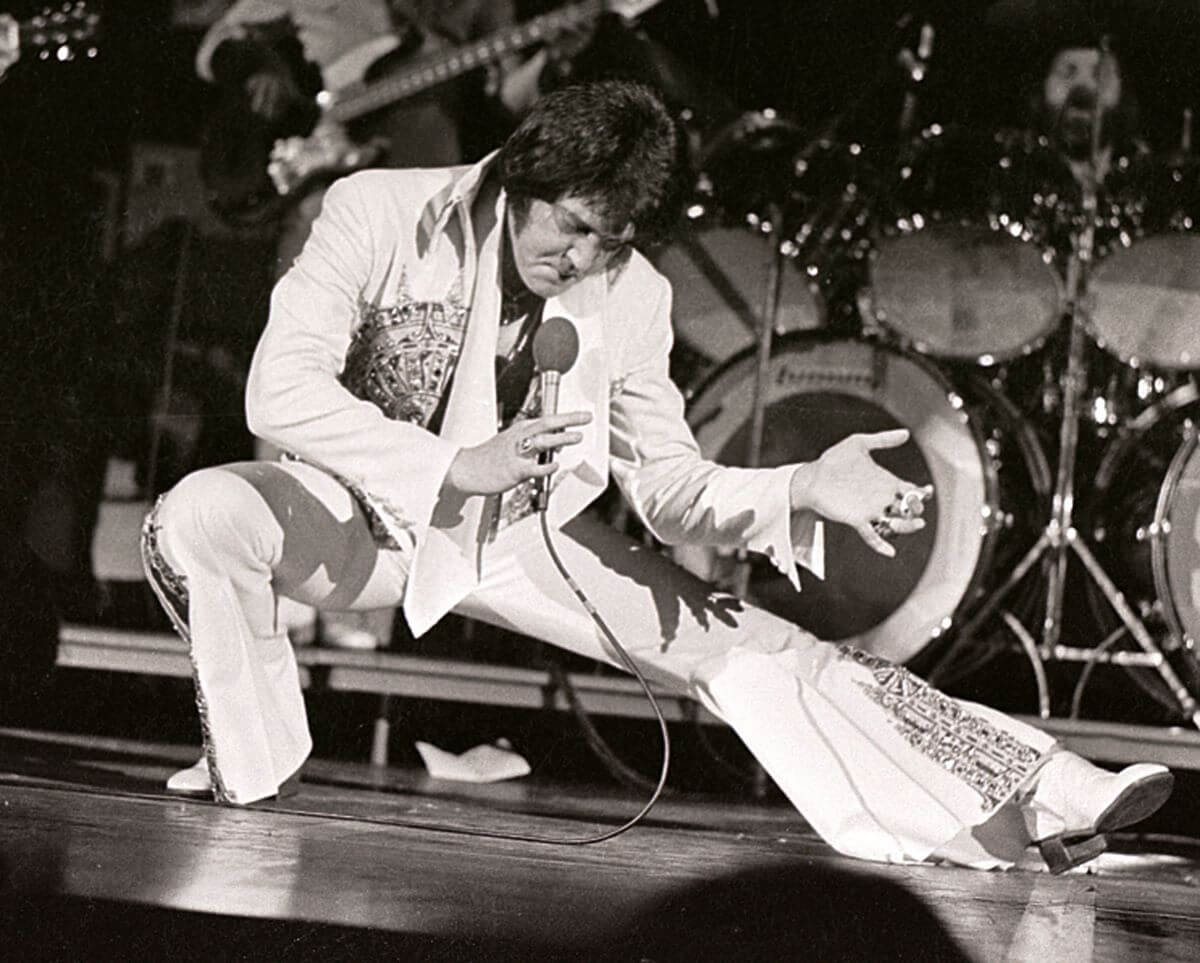
Elvis ‘Suffered an Acute Lack of Self-Esteem’ About His Value Outside of Music
When Elvis Presley got onstage to perform his music, he was confident and collected. He cracked jokes to the crowd and enjoyed witnessing his ability to rile them up. Offstage, though, the people who knew him said he seemed less confident. Gene Nelson, who directed Elvis in two films, believed the singer’s self-confidence was surprisingly low off the stage.
Elvis didn’t seem to think highly of himself outside of music
Nelson directed Elvis in Kissin’ Cousins and Harum Scarum. While he found the singer to be hard-working and polite, he didn’t feel that he ever got to know him too well.
“He was just so enigmatic,” Nelson said in the book Careless Love: The Unmaking of Elvis Presley by Peter Guralnick. “I mean, you felt compelled to try to figure out what really made him tick, because what he presented was not really Elvis, at least not all of it. I mean why would he isolate himself with this bunch of idiots? What is going on?”

The “idiots” — or Elvis’ ever-present entourage — made it difficult to get close to the singer. Still, Nelson came to some level of understanding about Elvis.
“Well, I finally came to the conclusion that Elvis had no [insecurity] about what he was in the media, absolutely none,” Nelson said. “He knew he was great. He knew he could do anything he wanted.”
With regard to anything outside of music, though, Nelson thought Elvis struggled.
“However, I thought he suffered an acute lack of self-esteem as a human being,” Nelson explained. “I found, not once but a number of times, that he felt he was uneducated, and had nothing to contribute in a conversation.”
Gene Nelson thought Elvis was more dedicated to growing his music career than his acting
Nelson believed that Elvis’ low self-esteem also impacted his acting. He seemed embarrassed about his skill level, which prevented him from taking the risks necessary to grow.
“As a performer, he wasn’t adventuresome, he didn’t really want to learn, because he was embarrassed, and, besides, what he was doing worked, so why change it? I don’t think he was ever involved to his full potential as an actor, but I could see moments where he would get involved in a scene,” Nelson said. “I think he could have been a very good actor, but mostly he would just be his charming self and get away with it — because he was Elvis Presley.”
Another director noticed a similar side to Elvis
Years later, Elvis on Tour director Bob Abel noticed a similar side to the singer. Abel saw Elvis as an intelligent person. Still, he didn’t think he allowed himself to be all he could have been. Abel believed this came down to his insecurity.

“I think there was a part of him that felt hollow, that he was a nobody, there were parts of him that he could not explore,” Abel said. “I went into the rehearsals in a parochial sense, trying to get to know him, and the gospel part of it was a real insight. But I realized [after a while] with all of the musicians and bodyguards and sycophants around, that these guys had been around for seventeen years now telling the same stories and jokes, and what kind of a life is this? And do I film it? And if I film it, do I show it more than once to make a point?”


